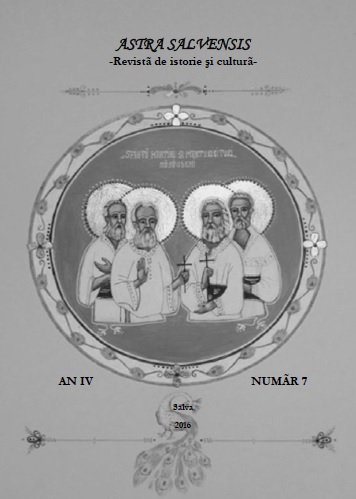Polish political philosophy of freedom. The discussion on religious subjects between Andrzej Wiszowaty and Gottfried Wilhelm Leibnitz, from 60s of the seventeenth century
Polish political philosophy of freedom. The discussion on religious subjects between Andrzej Wiszowaty and Gottfried Wilhelm Leibnitz, from 60s of the seventeenth century
Author(s): Robert MieczkowskiSubject(s): Theology and Religion
Published by: Asociaţiunea Transilvană pentru Literatura Română şi Cultura Poporului Român - ASTRA
Keywords: Polish philosophy of freedom; Socinians; Polish Brethren; Andrzej Wiszowaty (1608-1678); theological discussion; Gottfried Wilhelm Leibniz (1646-1716); political philosophy;
Summary/Abstract: Poland was considered to be a country of freedom, country without stakes. Not only because the principle of freedom of the nobility, the so-called golden freedom, as the basis of the noble system of the Republic, Serenissima Respublica, as they called their state, but also thanks to religious freedom which functioned before the Partition of Poland. An important document in this dimension was the resolution of the Confederation of Warsaw from January 28, 1573, established at Convocative Sejm. Contained provisions for ensuring freedom of religion for nobility in the Commonwealth, guaranteed unconditional and eternal peace between believers of different religions. Confederation of Warsaw assured equality with the Catholics and the care of the state. This document is considered to be the beginning of the legally guaranteed religious tolerance not only in Poland but also in the world. It is also a certain similarity between Poland and one of the regions in Romania, Transylvania, which also boasted for a considerable religious tolerance. Confederation is undoubtedly important Polish contribution to the history of Europe and the world. In the article attention will be paid to one of the manifestations of Polish freedom philosophy - the philosophy of Polish brothers during the Reformation. Polish Brethren were called also Arians, Socinians, Antitrinitarians. Article is devoted to teoretical analysis of the achievements of this religious sect. Particular attention will be paid to the theoretical achievements, discussing issues of religious dogma, first and foremost authors such as: Adam Gosławski and Andrzej Wiszowaty. I will undertake the issues off important discussion, from the seventeenth century, between Wiszowaty and Leibniz, the subject of which was the dogma of the Holy Trinity. Antitrinitarians postulated rational approach to religious matters, self-study of the Bible, do not forbid anyone to believe in the way considers appropriate for them.
Journal: Astra Salvensis - revista de istorie si cultura
- Issue Year: IV/2016
- Issue No: 7
- Page Range: 85-103
- Page Count: 18
- Language: English

